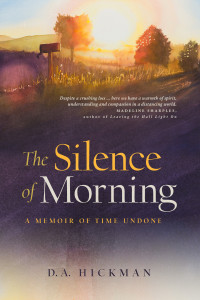HAVE you ever written a long essay, a poetry collection, a book? I’m assuming nearly everyone reading this has written something of some length. It’s a curious process, isn’t it? Some love it, many don’t. Not everyone is cut out to be a writer. To suggest it takes tremendous patience, dedication, skill, and trust is not doing the work justice, is it? Because, in all reality, it demands much more. Writing also requires the willingness to take every daily interruption in stride. Creating art via thought, intuition, and sentences takes enormous focus and concentration–a keen ability to listen for the words, the message–yet, in this world of constant “something,” interruptions are the norm.
The doorbell rings. The cell phone chimes. The dog barks. The cat wants attention. The nagging to-do list thwarts progress. The yard needs water. The shrubs need trimming. The floor needs vacuuming. The wall needs paint. The kitchen blinds need an update. The important phone call must be returned. The book you’re reviewing for a friend must be read. The delivery truck wants a signature for an item you forgot you ordered. The dinner must be purchased, planned, prepared. The new wine must be tried. The lawn must be mowed again; overgrown trees must come down, new ones planted. The article you’ve worked on diligently (the one with an urgent deadline) seeks a final paragraph late into the night when the speed of life slows down ever so briefly. The printer jams, and how long will it take to get it fixed; who can fix it? What about visiting an aging relative, the friend in the hospital, the neighbor moving to assisted living? Maybe you volunteer for a nonprofit; maybe you crave more time “to be” with the universe without any kind of agenda …
YET … a spring sunrise takes your breath away, and you must spend a few minutes gazing at it.
A memory takes you by the throat, holds you to the fire, as you dare to remember, deeply so, someone you’ve loved and lost.
In my case … the son I wrote about in my memoir, THE SILENCE OF MORNING.

As author Annie Dillard wrote in one of her many books: “It takes years to write a book–between
two and ten years. Less is so rare as to be statistically insignificant.” — The Writing Life (1989)
During the seven years it took to write and publish my memoir, the interruptions, the distractions and diversions, were plentiful. Even abundant! But a true writer somehow perseveres. Somehow believes so much in the journey, the book’s message, the pain and the joy of writing itself, that giving up isn’t an option. If you set out to climb a mountain, those who are serious about it … climb it. One way or another.
Music helped me a lot. Helped me delve into tangled emotions that weren’t easy to describe. When the book was in the editing phase, for instance, I often listened to a CD called Songbird Sunrise.
I like to get up around 5 a.m. and work when the house is still quiet, and somehow, the simple, sincere sounds of birds (in the spring and summer, you can just open the window, but I was editing and proofreading in the winter) helped me tune in to each sentence anew. When a book has been worked on for many years, it’s easy for even the sharpest eyes to skip over details. So I needed music that allowed me to really see each sentence … in the moment. I had to open an internal space for a task that many dislike, because the creative fuel that takes the process from a tiny seed to a full-grown tree is low by this stage of the process. Authors are exhausted when a book is completed. At least the authors I know. But a serious book project has many stages and phases and getting a first draft written is barely a scratch in the surface.
Not that the story need be long, but it will take a long while to make it short.
– Henry David Thoreau

For perspective, I grew these hollyhocks back in 2008; they helped to inspire me to even begin the memoir. I remember writing about them in the book–how somehow, they also had fueled the journey. Beginnings are interesting, aren’t they? If you are a writer, what inspired you to take the first step … often the most critical of all? Sometimes it’s good to look back at those first steps to appreciate the hardships, the joys, of the climb. It’s also good to pause deeply when a project comes to fruition.
Prose is architecture, not interior decoration.
– Ernest Hemingway
Most of the authors I know write because they care. Care deeply for the work, the ideas, the creative journey. For the deep and powerful personal commitment it takes to sustain the work … building invisible bridges from paragraph to paragraph, from chapter to chapter. In this blog post, I want to honor the work of authors. I can’t image a world without “us.” It would be a dark, futile world. One extremely short on inspiration, connection and understanding, and most of all, one with less beauty. For even from the darkest shadows, the deepest sorrows, beauty can be found. And shared.

A writer without interest or sympathy for the foibles of his fellow man is not conceivable as a writer.
– Joseph Conrad
As I wrote in The Silence of Morning: A Memoir of Time Undone: “Our minds rush to interpret events as good or bad, positive or negative, as we eagerly watch for the ‘good’ and, more cautiously, for the ‘bad.’ But when darkness descended into my world with absolute force and determination, abstract concepts became fiercely personal, and I was drawn to profound life questions as never before.”
- Being drawn to profound life questions is utterly important. A tremendous gift … when understood and acted upon over time. So, despite Matthew’s loss, ultimately, there was beauty in my path … a path suggested by the white and pink hollyhocks that stood tall before me while I sat on our deck to study them, to seek solace in their upward flight — their show of color, their subtle optimism.
- The light of life may not look like we think it should; it may not be the light we think we want or need. Fortunately, as an author, I was willing to explore what I’d been given, was willing to deeply consider the profound mysteries we are born into. Mysteries lodged in silence. And ambiguity. My memoir somehow penetrates that silence, however, as I initially survive its fierce echo after my son’s sudden death, and then when I realize I must, one day, embrace it.
- Even though I wasn’t remotely prepared for the curious demands of loss, I dared to wonder: who is?
No tears in the writer, no tears in the reader. No surprise in the writer, no surprise in the reader.
― Robert Frost
Pay attention to beginnings. Dare to wonder about the most perplexing life mysteries. Care deeply about humanity and your work. Find the stamina to go the distance. Authors are stunning athletes in a world that often misses this reality. Believe in what you want to explore, and discover. Know that being an author, a writer, is one of the most challenging things you’ll ever do. And clearly, the most rewarding. You set out on this rocky path armed with very little, knowing almost nothing. Yet, you are filled with a sense of possibility. Guided by questions, random thoughts, a shaky desire to create something out of nothing. And … you understand courage, you know patience, and you believe in magic. Deep in your soul, and this might be quite surprising to some of you, you even know what it is that you must write before you ever set down the first line in a book. Become one with that place of knowing. It will lead you through the early morning, the late nights, and well beyond those who don’t understand, or value, your mission. And that is a where you must be, and stay, to find your story — the one with the potential to reach the hearts and minds of others. Godspeed. — dh
If you are a writer … what has sustained you?
What has helped you face the blank page, the muddled page, the final page?
Thanks so much for stopping by this sunny space for kindred spirits.
See you again Friday, June 3rd.
to derive a better understanding of the human condition.
— D. A. Hickman, The Silence of Morning

can be found here WE NEED MEMOIR.
Thanks again, Richard!
Blog by SunnyRoomStudio: all rights reserved.
